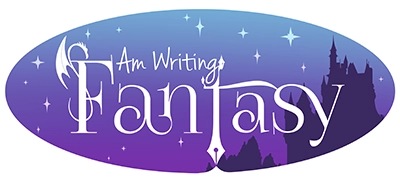What is the first thing you remember about the last book you read?
Maybe it is the final scene or the exciting climax? A tragic moment or one of deep love? No matter what it is, I bet it is partially shaped by how the book ended.
If the protagonists were happy, we are left with a golden glow that colors every memory we have of the book. If we are left in suspense by a new building plot, even the penultimate moment of success will be tinged with a hint of anxiousness. Sure, she achieved the ultimate goal and saved the kingdom, but, oh my gosh, how will she deal with what comes next?
Many new authors skip the wrap-up of the novel which should come just after the climax. It is a time to reduce tension, tie up plot lines, and allow the characters to move forward with their lives. At least that is mechanics of it but the role the wrap-up plays is far more important.
Because that final scene plays a pivotal role in how we remember a book.
At least it sets the emotional tone with which we remember a book. That should be reason enough to make sure your book’s ending is just as stellar as the beginning.
Happily, there are three types of endings to choose from depending on your goal.
.
The cliffhanger totally skips the wrap-up. Actually, it is MORE than just skipping the wrap-up. When most new authors minimize the last chapter, they, at least, usually, follow through to the end of the climax so that the reader knows if the character survives, is successful, or faces life in the dungeon.
A cliffhanger ending doesn’t provide any of that.
The book rises in tension to the pivotal moment when the reader is gripping their e-reader so hard they might crack the screen and they desperately flip the page to … blankness. The books just ends.
Seriously, a cliffhanger book provides no resolution. This would be Ned Stark forced to his knees as the executioner raises the sword and Sansa pleads with Joffrey for her father’s life. Roll final credits. The reader (or viewer!) would have no idea if Sansa succeeds or if Ned dies, nothing.
Readers either love or hate cliffhangers and I have to agree with them. They make a book feel incomplete. If there is a following book, it can feel as if the author is FORCING you to buy the next book to learn the resolution. Who likes to be forced?
But in the right type of book, one that is supposed to make you choke on your heart hammering in your throat and then make you think, really think, about what was happening, it is an immensely powerful ending.
Because it builds a lot of tense energy up in the reader and then lets them go.
Which means a reader will need to find their own way to release that energy. It could mean scooping up the next book in desperation. It could mean throwing their e-reader across the room. It could mean blasting your book and you into oblivion in the worst one-star review EVER.
So be careful with this one, ok?
Pros: Powerful, complicated ending that will drive a reader crazy
Cons: Powerful, complicated ending that will drive a reader crazy
NOTE: Should come with the warning to authors “Live explosive. Handle with care!” Readers will have a strong reaction, either positive or negative to a cliffhanger (with nothing in between). So if you want to not just rock the boat but put it in a martini shaker held by a maraca player, this is the one for you. Everyone else, please avoid. And never, ever, use it just to make readers buy the next book. You have been warned.
.
The traditional story arc is the gentle release of tension that is everything that the cliffhanger isn’t.
The epic battle from the climax is resolved in a dramatic end of chapter scene. The reader flips the page to find the main character take a breath and face a new world where they have conquered. And still have a lot of crap to do to wrap up the war. Darn it.
In almost an inverse image of the inciting incident, the main character straightens up the chaos and reacts to the result of what they have just done in a mature manner totally at odds to how they reacted at the beginning of the novel. This wrap-up shows how far the character has come. It is the capstone of a grand tale.
All subplots are wrapped up. So anything that didn’t resolve during the climax is neatly tied up in the final chapters. Usually it also projects the character forward, either with making plans or resolving promises (like marriage or returning home) or with a jump forward in time to show how the character has adapted to life after the great adventure. Sound like any hobbits you might know?
Pros: The reader is highly satisfied and has all questions answered
Cons: Everything is tied up. Hope you weren’t planning on continuing the story!
NOTE: Great for standalone books OR the final book of a series because it resolves everything. The main plot and all subplots are complete and the character is usually shown adjusted or adjusting to a new life. So the reader has no overwhelming urge to see what happens next.
.
Yes, of course, I saved my favorite for last! The soft cliffhanger is the ending that falls between the traditional story arc and a cliffhanger. It provides the reader with a controlled descent from the epically tense high of the climax, provides resolution to the main plot of the book, and then tweaks the tension once more so the reader is left with a desire to know what happens next BUT has that wonderful satisfaction of knowing the character made it through the trials laid out in the book.
Isn’t that the best of both worlds?
Just like in the traditional story arc, the narrative continues after the climax. The character reacts to her success or loss. The main plot of the book that pulled the reader forward from page one is over. Subplots are tied up too, promises kept, except for that one little thing…
Maybe one promise is held back. Or a little subplot ignored for more bigger problems becomes the more pressing matter. Something happens at the end that sends a character, not necessarily the main character, the reader has grown fond of reeling.
Oh my gosh, how can the book end on that note?!
This ending works better when it is a subplot from the book rather than something out of the blue. The shock factor of discovering some unheard of army just sacked the main character’s home village while she was fighting the sorcerer works, but is akin to a true cliffhanger ending. It leaves the reader with a slap across the face rather than a pit-of-the-stomach worry.
I should know because I used one of those out-of-the-blue cliffhanger endings once. It was only my second book, so I forgive myself for utilizing a heavy handed tactic that I would avoid now. Most readers don’t mention it, but a few do and usually in irritation. That taught me what not to do again!
The best soft cliffhanger endings are character decisions that a reader didn’t see coming but make complete sense based on that character or a building subplot that was ignored. Develop these to lead into the next book and leave your reader aching to know what happens next while thrilled they know how the character fared in the last challenge.
Pros: The reader is both satisfied at the book’s resolution and anxious to know what happens in the next book.
Cons: A shock ending can result in similar repercussions to a true cliffhanger!
NOTE: Use this with a series. And to really feed a reader’s desire to know what happens next provide the first few chapters of the next book at the end of the current so the reader can see how the tiny problem compounds into a new, captivating book. Feed their curiosity and desire to read, don’t twist their arms and force them into the next book!
Now it is over to you! What book endings do you prefer and how did your favorite book end? Do you agree endings color your emotional perception of a novel? Tell me in the comments!











0 Comments
Trackbacks/Pingbacks